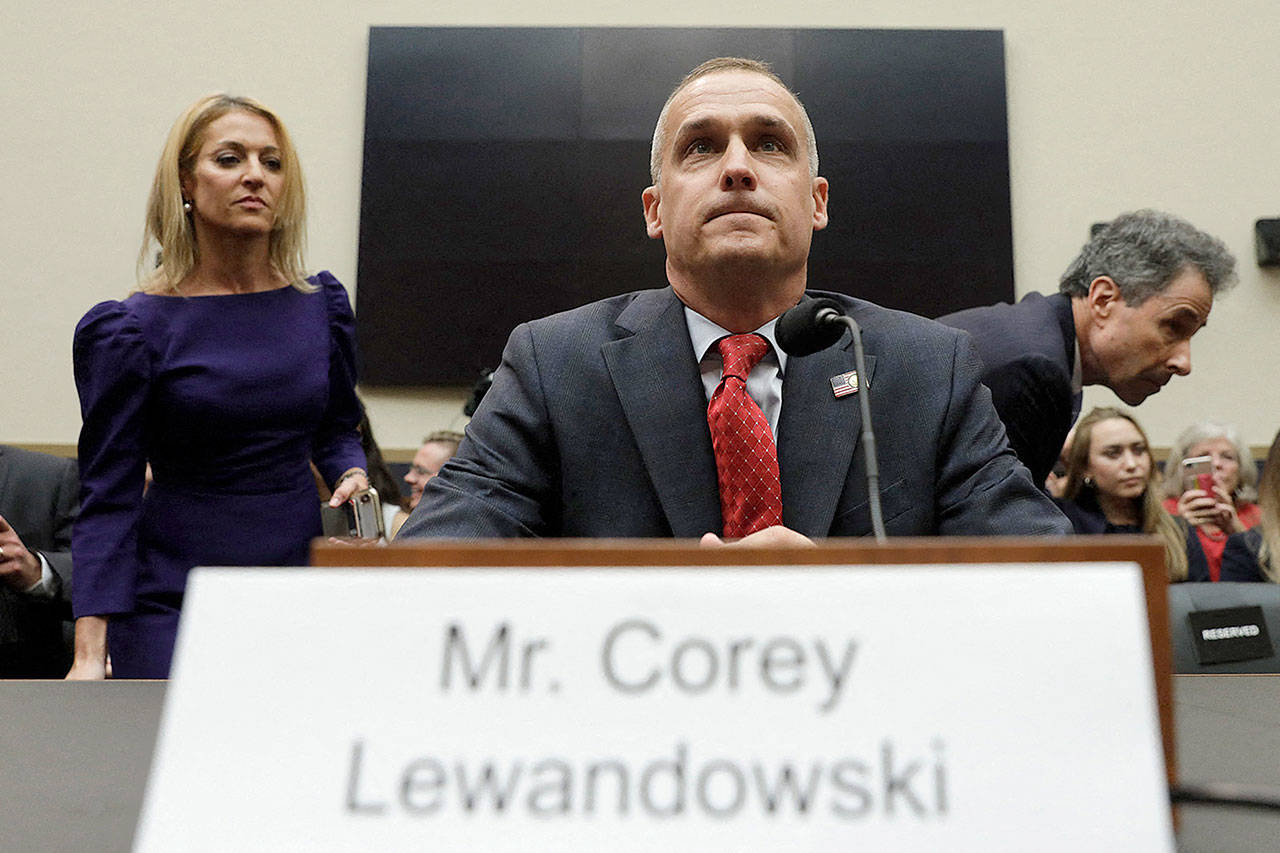WASHINGTON, D.C. — President Donald Trump’s first campaign manager, Corey Lewandowski, quickly clashed on Tuesday with Democrats on the House Judiciary Committee who are considering whether to impeach the president over allegations that he obstructed justice by trying to limit the investigation into Russia’s election interference.
“The American people continue to be sold a false narrative with the purpose of undermining the legitimacy of the 2016 election results,” said Lewandowski, who remains loyal to Trump and is considering running for the U.S. Senate in his home state of New Hampshire.
Trump appeared impressed by Lewandowski’s comments, tweeting from Air Force One on his flight to California that it was “such a beautiful opening statement.”
Rep. Jerrold Nadler, chair of the House Judiciary Committee, began the hearing by saying Lewandowski had “vital information about presidential obstruction.”
“We will not be daunted by the cover-up,” said Nadler, D-N.Y. “We intend to secure accountability for any wrongdoing.”
Lewandowski was a key figure in episodes examined by former special counsel Robert S. Mueller III. According to Mueller’s report, Trump twice asked Lewandowski for help limiting the scope of the investigation, including whether anyone from his campaign was involved.
The first time, on June 19, 2017, Trump told Lewandowski that he was being “treated very unfairly” and there shouldn’t be a special prosecutor. He asked Lewandowski to tell Jeff Sessions, then the attorney general, to limit the investigation to election meddling in future elections rather than examine what happened during his campaign.
One month later, Trump reminded Lewandowski to deliver the message and told him to tell Sessions that the attorney general would be fired if he did not take the meeting with his former campaign manager. At the time, Sessions had recused himself from the Russia investigation because he had worked with Trump’s campaign.
Neither message was ultimately delivered to Sessions, but Democrats have described the conversations as examples of how Trump tried to obstruct justice. Mueller wrote in his report that the investigation did not establish a criminal conspiracy between Moscow and Trump’s campaign.
Democrats have been at odds with each other on whether to seek Trump’s impeachment. In addition, the House Judiciary Committee has struggled to make progress — Lewandowski is its first witness, five months after Mueller released his report — and the White House has aggressively moved to limit his testimony even though he never worked in the Trump administration.
“Any information about his communications with the president or with senior advisers to the president not already disclosed in the Mueller report, however, remains confidential,” said Steven Groves, a deputy press secretary. “Congress cannot compel disclosure of the substance of those communications, and Mr. Lewandowski has been directed not to testify about them.”
The White House also directed Rick Dearborn, a former deputy chief of staff, and Rob Porter, a former staff secretary, not to testify on Tuesday despite being issued congressional subpoenas.
The intransigence will likely add to House Democrats’ legal workload. They’re already suing Donald McGahn, Trump’s first White House counsel, to compel his testimony.
“We should call this what it is, an absolute cover-up by the White House,” Nadler said Tuesday.
It’s unclear whether Democrats will be successful in court. Ross Garber, a Tulane University law professor who specializes in political investigations and impeachment law, said claims of executive privilege —a legal principle that allows presidents to keep their conversations private —have not yet been fully tested in court. So far Trump has been able to hold congressional investigators at bay.
“These assertions of privilege and immunity have born few if any adverse consequences, either legally or politically,” Garber said. “It doesn’t surprise me that the president and the White House would make these assertions.”


